The Caribbean Island Of Antigua &
Barbuda
|
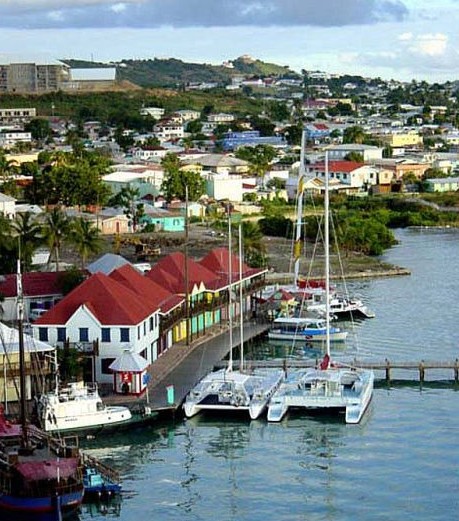
Antigua, the largest of the English-speaking Leeward Islands, is about
14 miles long and 11 miles wide, encompassing 108 square miles. Its highest point is Boggy Peak
(1319 ft.), located in the southwestern corner of the island. Barbuda, a flat coral island with an
area of only 68 square miles, lies approximately 30 miles due north. The nation also includes the
tiny (0.6 square mile) uninhabited island of Redonda, now a nature preserve.
The current population for the nation is approximately 68,000 and its capital is St. John's on
Antigua. Antigua (pronounced An-tee'ga) and Barbuda are located in the middle of the Leeward
Islands in the Eastern Caribbean, roughly 17 degrees north of the equator. To the south are the
islands of Montserrat and Guadeloupe, and to the north and west are Nevis, St. Kitts, St. Barts, and St. Martin.
Climate
Temperatures generally range from the mid-seventies in the winter to the mid-eighties in the
summer. Annual rainfall averages only 45 inches, making it the sunniest of the Eastern Caribbean
Islands, and the northeast trade winds are nearly constant, flagging only in September. Low
humidity year-round.
|
|
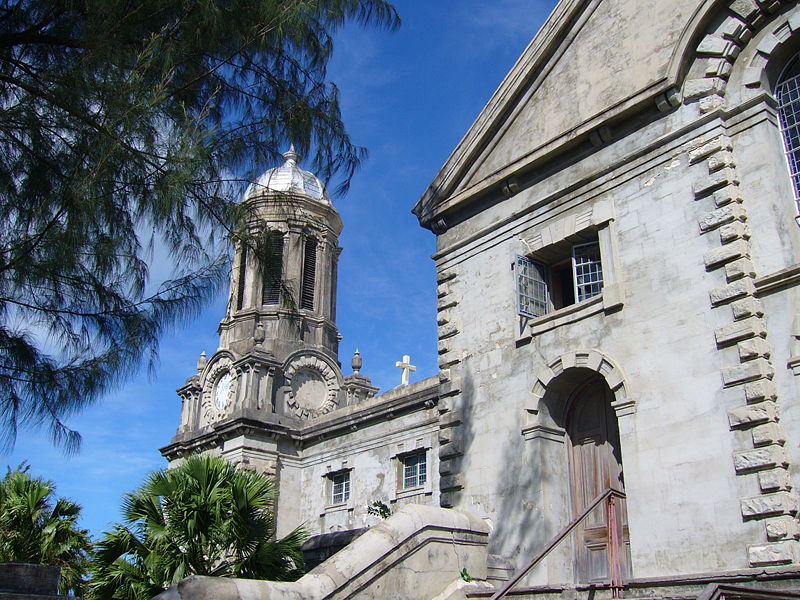
History
It would be difficult to overestimate the impact on Antigua's history of the arrival, one
fateful day in 1684, of Sir Christopher Codrington. An enterprising man, Codrington had come to
Antigua to find out if the island would support the sort of large-scale sugar cultivation that
already flourished elsewhere in the Caribbean. His initial efforts proved to be quite successful,
and over the next fifty years sugar cultivation on Antigua exploded. By the middle of the 18th
century the island was dotted with more than 150 cane-processing windmills--each the focal point of
a sizeable plantation.
Today almost 100 of these picturesque stone towers remain, although they now serve as houses,
bars, restaurants and shops. At Betty's Hope, Codrington's original sugar estate, visitors can see
a fully-restored sugar mill.
|
|
Most Antiguans are of African lineage, descendants of slaves brought to the island centuries ago
to labor in the sugarcane fields. However, Antigua's history of habitation extends as far back as
two and a half millenia before Christ. The first settlements, dating from about 2400 B.C., were
those of the Siboney (an Arawak word meaning "stone-people"), peripatetic Meso-Indians whose
beautifully crafted shell and stone tools have been found at dozens of sites around the island.
Long after the Siboney had moved on, Antigua was settled by the pastoral, agricultural Arawaks
(35-1100 A.D.), who were then displaced by the Caribs--an aggressive people who ranged all over the
Caribbean.
The earliest European contact with the island was made by Christopher Columbus during his second
Caribbean voyage (1493), who sighted the island in passing and named it after Santa Maria la
Antigua, the miracle-working saint of Seville. European settlement, however, didn't occur for over
a century, largely because of Antigua's dearth of fresh water and abundance of determined Carib
resistance. Finally, in 1632, a group of Englishmen from St. Kitts established a successful
settlement, and in 1684, with Codrington's arrival, the island entered the sugar era.
By the end of the eighteenth century Antigua had become an important strategic port as well as a
valuable commercial colony. Known as the "gateway to the Caribbean," it was situated in a position
that offered control over the major sailing routes to and from the region's rich island colonies.
Most of the island's historical sites, from its many ruined fortifications to the
impeccably-restored architecture of English Harbour town, are reminders of colonial efforts to
ensure its safety from invasion.
Horatio Nelson arrived in 1784 at the head of the Squadron of the Leeward Islands to develop the
British naval facilities at English Harbour and to enforce stringent commercial shipping laws. The
first of these two tasks resulted in construction of Nelson's Dockyard, one of Antigua's finest
physical assets; the second resulted in a rather hostile attitude toward the young captain. Nelson
spent almost all of his time in the cramped quarters of his ship, declaring the island to be a
"vile place" and a "dreadful hole." Serving under Nelson at the time was the future King William
IV, for whom the altogether more pleasant accommodation of Clarence House was built.
It was during William's reign, in 1834, that Britain abolished slavery in the empire. Alone
among the British Caribbean colonies, Antigua instituted immediate full emancipation rather than a
four-year 'apprenticeship,' or waiting period; today, Antigua's Carnival festivities commemorate
the earliest abolition of slavery in the British Caribbean.
Emancipation actually improved the island's economy, but the sugar industry of the British
islands was already beginning to wane. Until the development of tourism in the past few decades,
Antiguans struggled for prosperity. The rise of a strong labour movement in the 1940s, under the
leadership of V.C. Bird, provided the impetus for independence. In 1967, with Barbuda and the tiny
island of Redonda as dependencies, Antigua became an associated state of the Commonwealth, and in
1981 it achieved full independent status. V.C. Bird is now deceased; his son, Lester B. Bird, was
elected to succeed him as prime minister.
Source: http://www.antigua-barbuda.org/aghis01.htm
|
Antigua and Barbuda's flag and Coat of arms
|
|
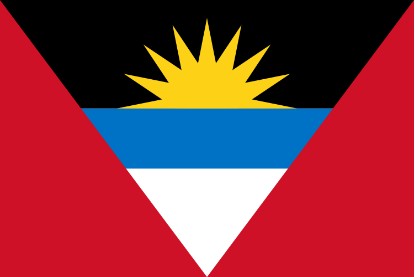
Antigua and Barbuda's flag
Antigua and Barbuda's flag was designed by Mr. Reginald Samuel, an art teacher in an Antiguan
high school, when Antigua gained "statehood" status (Self-governing) in 1967.
L. Jacobs II , 21 September 1998 and Ivan Sache , 31 January 2000
Acording to L'Album 2000 [pay00] the construction details are stripes in ratio 18:10:18, lenght
69~ [so total ratio 2:3~]. Is this based on some official data?
[smi80] have as civil ensign for Antigua and Barbuda to be the british red ensign, but here the
national flag is indicated to be (among other uses) civil ensign too. Is that changed since
1980?
Željko Heimer, 5 January 2001
Meaning of Symbols and Colors: The sun represents the dawning of a new era; red - the energy of
the people; blue - hope; black, the African ancestry of the people. The combination of yellow, blue
and white represent the sun, sand and sea.
James Dignan , 22 November 1995
|
|
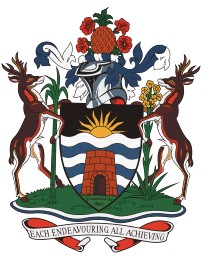
Coat of arms of
Antigua and Barbuda
The coat of arms of Antigua and Barbuda was designed in 1966 by Gordon Christopher. It was
officially introduced on 16 February, 1967. The symbolism of the arms is more complex than that
found on the Flag of Antigua and Barbuda, but many elements are similar.
At the top of the Coat of Arms is a pineapple, a fruit for which the islands are famous. There
are several plants found around the shield, all abundant in the country: red hibiscus, sugarcane,
and yucca plant. Supporting the shield is a pair of deer representing the wildlife of the
islands.
The design on the shield shows the sun, also found on the flag, rising from a blue and white
sea. The sun symbolises a new beginning, and the black background represents the African origins of
many of the nations's citizens. At the bottom of the shield, in front of the sea, sits a stylised
sugar mill. At the bottom is a scroll upon which is written the national motto: "Each endeavouring,
all achieving".
|
Getting to Antigua and Barbuda
|
|
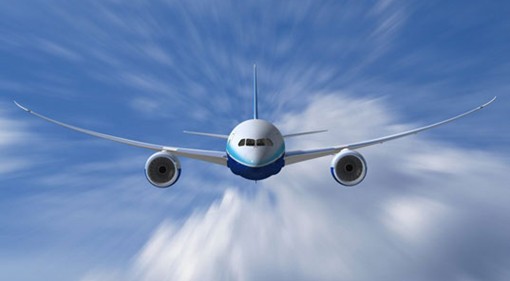
Travelling By Air
V.C. Bird International Airport, located on the northeast corner of Antigua, is the point of entry
for visitors arriving by air to Antigua & Barbuda. There are both direct flights and
connections from North America via San Juan and St. Martin and several weekly flights from Europe.
Scheduled and charter service is available to many of the neighboring islands. Flying times: New
York--4 hrs.; Miami--3 hrs.; Baltimore--4 hrs.; Toronto--4 hrs.; Puerto Rico--1 hr.; London--8
hrs.; Frankfurt--9 1/4 hrs.; Paris--8 hrs.
Travelling By Sea
Cruise ship ports are located at St. John's Harbour and Heritage Quay, in the heart of the
country's capital, and minutes away from Antigua's great beaches and water sports.
Private boaters can enter at St. John's Harbour on the west coast, English Harbour or the St.
James' Club in the south, or Crabbs Marina in the northeast.
Bare-boat or crewed chartering is available through:
|
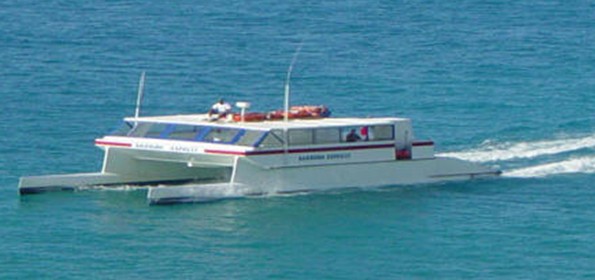
Barbuda Express
The Barbuda Express is an innovative wave-piercing design giving maximum passenger comfort at
high speed and a journey time of 90 minutes in nearly all weather conditions.
It runs 5 days a week between St Johns and Barbuda:
Barbadians can spend a convenient day in St Johns for business &/or shopping with a liberal
allowance for personal goods carried on board by hand
Antiguans can visit Barbuda for the day or longer, at reasonable rates, to enjoy the amazing beauty
and peace of their sister island
Tourists can economically visit Barbuda with a selection of packages to explore and discover this
undeveloped and little-visited island
Freight can be regularly and reliably moved between the islands
|
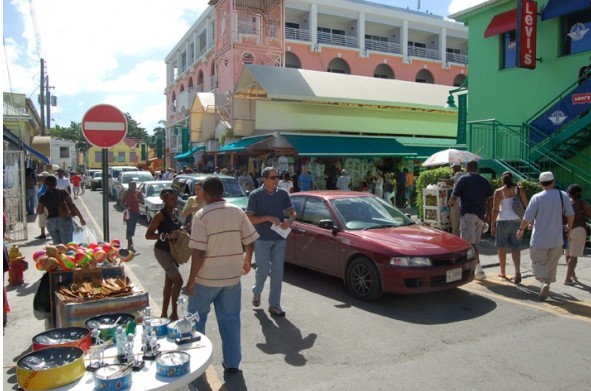
Getting Around in Antigua and Barbuda
Taxis
Taxis are available throughout Antigua. Fares between the airport, harbour, and many hotels and
destinations are fixed and can be obtained upon arrival. Sample fares from V.C. Bird International
Airport to: Nelson's Dockyard--US$21; Shirley Heights--US$21; St. John's--US$7. Taxi drivers are
also qualified as tour guides for sightseeing trips. Tour rates can be obtained beforehand through
hotels.
Car Rentals
Renting a car is an ideal way to discover more of Antigua while on your vacation. The cost is
about US$40-50 per day. In addition to a valid driver's license from your country of residence, or
an international driver's license, a permit to drive in Antigua is required. The rental agency can
assist you in getting this temporary license, which costs approximately US$20 and is valid for
three months. Don't forget that driving here is on the left side of the road! Here is a listing of
rental agencies:
More and more people are getting married while on vacation, and it's now easy to do in Antigua
and Barbuda. Even cruise ship visitors can now get married. There are three simple steps: Visit the
Ministry of Justice located on lower Nevis Street in downtown St. John's with your valid passports,
complete the application and pay applicable fees.
|
Marriage in Antigua and Barbuda
|
|
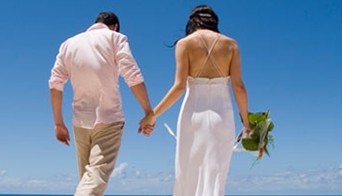
When getting married in
Antigua and Barbuda there is a registration fee of US$40 that must be paid at the courthouse
in the new government buildings on Queen Elizabeth Highway. The application fee for the
special marriage license is US$150, and the Marriage Officer's fee is US$50.You both will need
valid passports as proof of citizenship.
If either of you have been previously married, then bring along the original divorce decree or,
in the case of a widow or widower, the original marriage and death certificates. Both parties must
be over 15, if under 18, written authorization from your parents or guardians is required. It is
important that all documents presented are original or certified original by the issuing
departments or offices. Ensure that all documents are in your legal name, and provide affidavits in
cases where you are known by another name.
Your marriage must also be solemnized or celebrated in the presence of two or more witnesses,
apart from the Marriage Officer. (Just ask a guest or two to do this for you). Getting marriage in
Antigua requires the permission from the church authorities where you wish to be married. Have your
pastor contact the church to establish the requirements. Some churches ask that the couple attend
pre-nuptial consultations. Allow some extra time if planning a church ceremony. Contact the Antigua
and Barbuda Department of Tourism for a list of churches on the island.
Most of hotels in Antigua and Barbuda offer wedding and honeymoon packages. Check with your
travel agent or the Antigua and Barbuda Department of Tourism for more information. The Ministry of
Legal Affairs is open Monday to Thursday, 8:30am to 4:30pm and on Fridays from 8:00am to 3:00pm.
Flights which arrive into Antigua after 3:00pm will not permit couples to get to the Ministry of
Justice in time to apply for the Special Marriage License. In such cases, the couple can arrange
for the marriage to take place either the next day after completing the application process, or, on
any available day thereafter.
|
Antigua and Barbuda Travel Tips
|
|
Tipping/Gratuities, Same as in the US; 10-15% depending on the service.
Some restaurants & hotels will automatically add a 10% gratuity. If in doubt, just ask. Give
porters and bellhops 50 cents per bag, taxi drivers 10-15% of the fare.
Telephones, Calling the U.S. is easy from
Antigua and Barbuda. Most hotels offer USA Direct calling service, or they can connect you with a
U.S. operator for calling home.
Taxes, Antigua & Barbuda has a US$20.00
airport departure tax, a room tax of 8.5% and service charge of 10% (in lieu of tipping).
Electricity, Part of the island is 110
volts, the remainder is 220 volts. Most hotels have both voltages available.
Appropriate Attire, Informal, but
conservative. Beach attire is appropriate for the beach but not town, shops or restaurants. Some
hotels and restaurants stipulate jacket and tie for men and dresses for women in the evening.
Customs and Import, The importation and
wearing of camouflage clothing is prohibited in Antigua and Barbuda. Visitors should leave such
items at home to avoid confiscation.
Time Zone, Atlantic Standard Time, one
hour ahead of Eastern Standard Time and the same as Eastern Daylight Time. GMT -4.
Currency/Money, Official currency is the
Eastern Caribbean dollar which is fixed to the US dollar. Recent exchange rate was US$1.00 =
EC$2.65. US currency, traveler’s checks and major credit cards are welcome everywhere.
Banks, Antigua and Barbuda Development
Bank, Antigua and Barbuda Investment, Bank Antigua Commercial Bank, Bank of Antigua, Bank of Nova
Scotia, Barclays Bank PLC, Canadian Imperial Bank of Commerce, Caribbean Corporation Bank, Royal
Bank of Canada, Swiss American National Bank of Antigua. Banking hours are Monday through Thursday
from 8:00am to 1:00pm and again from 3:00pm to 5:00pm; Friday from 8:00am to 12:00pm, and 3:00pm to
5:00pm.
Medical Facilities, There are several
general practitioners and specialists on the island, a hospital and a private clinic. No
vaccinations are required unless the visitor is arriving from an endemic area. Decompression
chambers are available by air ambulance at nearby Saba and in St. Thomas. Pharmaceutical services
are widely available.
Passports & Immigration
U.S.,
Canadian and U.K. nationals require proof of citizenship--a valid passport, original or certified
birth certificate. U.S. residents and others should contact the nearest tourist office for entry
requirements.
Click here for Visa Information.
|
|
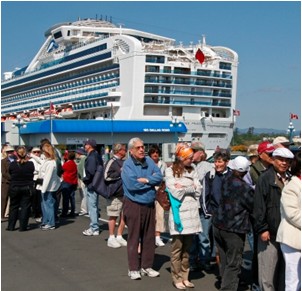
Cruise Ship Passengers
Cruise ship passengers who are "in-transit" and stay less than 24 hours are not required to
present a visa.
Traveling with Pets
The following
guidelines must be followed when importing any animal into Antigua & Barbuda:
An import permit must be obtained from the Chief Veterinary Officer before the importation of all
animals. In order to obtain this permit, the intended animal must first be micro-chipped and its
blood tested for Rabies Titer at an approved laboratory. The result of such tests must then be
forwarded to:
The Acting Chief Veterinary Officer
PO Box 1282, St. Johns, Antigua Tel/Fax: (268) 460-1759
The Kansas State University Rabies Laboratory is an approved Lab that uses the Fluorescent Antibody
Virus Neutralization Test (FAVN). The FAVN consists of a of a three-fold serum dilution series and
is used to detect rabies virus neutralizing antibody after vaccination, and is required by many
rabies free countries in order for dogs and cats to qualify for a reduced QUARANTINE PERIOD.
Specimen Requirement, 1 ml serum without
preservatives; spun and separated from the clot.
Microchip identification must be implanted prior to sample draw.
NOTE: A waiting period of at least 114-21 days between rabies vaccination and sample draw is
advised.
Processing Time, The test is initiated each
week on Monday and Wednesday mornings. Results can be expected in the mail 10 - 14 days after the
set-up date. Fax and/or phone results will only be granted upon request. KSU receives packages 24
hours per day, 7 days per week. However, the lab is only open Monday through Friday and samples
will not be dated until they reach our lab.
Shipping Information, Serum should be packed in a
leak-proof container with absorbent material. This should then be placed inside a container with
dry ice or ice packs. An overnight or next day carrier is recommended since regular mail can take
up to two weeks.
Cost:
$35.00 by check, money order or credit card made payable to FAVN. Payment must be included at time
of submission. A delay in testing may occur if payment is not included. For credit card payment,
please contact the lab.
|
Things To Do in Antigua and Barbuda
|
|
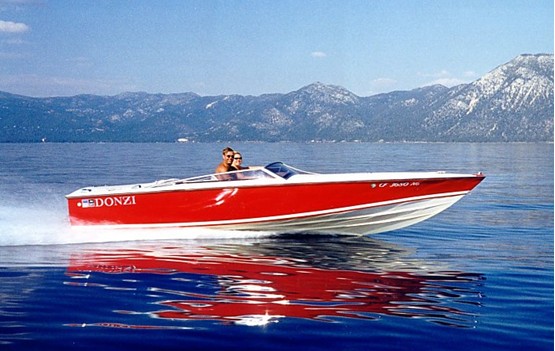
Boating
Sailing has been a central part of Antigua's culture for centuries, ever since the British under
Horatio Nelson made English Harbour their Caribbean base. Today, the stately Georgian architecture
of Nelson's Dockyard hosts a more pleasure-seeking fleet--the international racing boats,
recreational yachts, and classic sailboats of Antigua's annual Sailing Week. With such a rich
marine tradition, it’s no surprise that boats of all sorts can be hired in Antigua. Most hotels
have Sunfish or Sailfish, and a number of companies hire yachts.
Cricket
Antiguans are more than a little
devoted to cricket. The island has historically been a very strong contributor to West Indian and
international cricket, and the Antigua Recreation Ground is one of the finest places in the
Caribbean to take in a local, regional, or international match. Devotees of the game can visit the
Antigua and Barbuda Museum for a look at the infamous cricket bat of Vivian Richards, native
Antiguan, former captain of the West Indies Cricket Club, and one of the greatest batsmen of all
time. Matches can be found almost anywhere on the island, at almost any time.
Tennis
Although more recently established than its sailing counterpart, Antigua's annual Tennis Week draws
an impressive field of international competitors to the island in May of each year. Quite a few of
the island's hotels have excellent facilities.
Diving and Snorkeling
Antigua & Barbuda has hundreds of wrecks to explore and good shelf diving. Arrange for diving
equipment through your hotel or guest house.
Adventure Antigua: Eli's Eco Tour
Local Antiguan, Eli Fuller will show you the "other side" of Antigua. Growing up spending most of
his time on the water, Eli wants to make sure that even if you have been to Antigua on 10 other
holidays, your day out with him will leave you with a new picture of Antigua. This tour has been
spoken about on all of the cruise and travel forums as well as in countless guides and periodicals,
This tour shouldn't be missed while on Antigua.
ANTIGUA SAFARI
Around The Island Eco
Tour
Discover the Eco-system of Antigua. Come be adventurous and experience the off-shore deserted
islands, hidden caves and the amazing scenery of Nelson's Dockyard, not too mention the wild life
encounters and perhaps a chance of seeing a dolphin or whale.
Snorkel on colorful reefs or just relax on the beach with our locally made fruit juices or rum
punch.
Windsurfing
Windsurf Antigua is
located at Dutchman's Bay - best location, superb climate and ideal wind conditions. They have
good equipment and also specialize in teaching beginners.
Hiking and Bird watching
Hiking has not
been much developed as an organized activity, although Antigua has many trails and tracks that are
well suited to it. Most of the popular hikes lead to one or another of the island's many hilltop
fortifications: Fort George sits atop Monk's Hill, and Fort Barrington (captured by the French in
1666) is on the promontory at Deep Bay. The Historical and Archaeological Society frequently
arranges group hikes.
Much of the appeal of the natural environment in Antigua and Barbuda is the multitude of bird
species to be found there. The Frigate Bird Sanctuary on Barbuda, though accessible only by boat,
is the largest bird sanctuary in the Caribbean and contains over 170 species; Long Island and Great
Bird Island also offer outstanding opportunities for birdwatcher's.
|
|